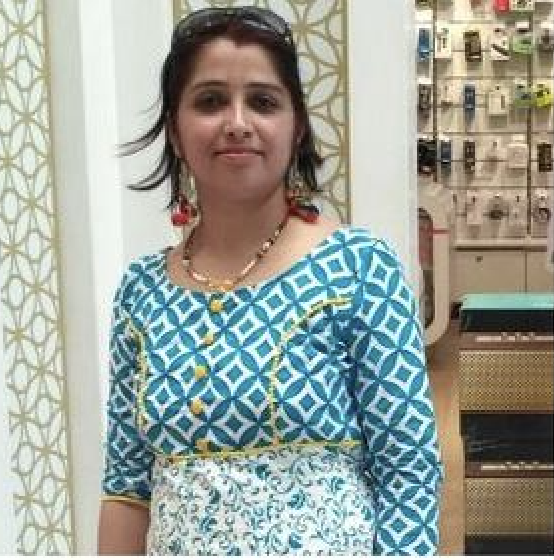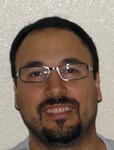Personal Knowledge Graphs: Methodology, Tools, and Applications
Aim of the Book
Personal knowledge graphs (PKG) encode the same information at an individual level and therefore varies widely. Constructing KGs that are widely used and extant online has been typically done manually over years. PKGs on the other hand require the processing of each person’s individual information and is constructed in automated fashion. Typically, a PKG formalizes expert information, either in clinical questionnaires or ontologies (e.g., Financial Industry Business Ontology (FIBO)), in terms of relevant relationships between entities. For instance, a knowledge graph (KG) for asthma can describe causes, symptoms, and treatments for asthma. APKG can be the subgraph containing just those causes, symptoms, and treatments that are applicable to a given user (or patient). The aim of the proposed book is to explore and structure the information on Personal Knowledge Graphs (PKG) which contains the information of entities personally related to other entities. We have reviewed the literature, and it appears that there is no current book on this topic. Most of the research about Personal Knowledge Graphs is only available in research articles. Our aim is to present the state of the art advanced research on Personal Knowledge Graphs including methodologies, tools and applications.
Recommended Chapters
Chapter 1: Personal Knowledge Graphs: An Introduction
Chapter 2: Named Entity Recognition and Linking in Personal Knowledge Graphs
Chapter 3: Construction Approaches of Personal Knowledge Graphs
Chapter 4: Modelling of Personalization and Context-awareness in Knowledge Graphs
Chapter 5: Evaluation Approaches of Personal Knowledge Graphs
Chapter 6: Relation Extraction Techniques for Personal Knowledge Graphs
Chapter 7: Query Answering in User Specific Knowledge Graphs
Chapter 8: Knowledge Representation and Reasoning (KRR) in Personal Knowledge Graphs
Chapter 9: Visualization Tools for Personal Knowledge Graphs
Chapter 10: Personal Knowledge Graph Integration Tools and Techniques
Chapter 11: Extracting Personal Facts from Conversations
Chapter 12: Fact Summarization for Personal Knowledge Graphs
Chapter 13: Applications of Personal Knowledge Graphs
Chapter 14: Conclusion
Important Dates
Chapter proposal: May 1, 2022
Full chapter submission: November 30, 2022
Notification to authors: November 1, 2022
Final Chapters of the book: January 1, 2023
Address for submission
Submission Link: https://easychair.org/conferences/?conf=pkg2022
Guidelines for Full Chapter Submission: TBD
For any other information, please contact the guest editors:

Universidad Autonoma de Tamaulipas, Cuidad Victoria, Mexico
Dr Sanju Tiwari is a Senior Researcher at Universidad Autonoma de Tamaulipas, Mexico. She is DAAD Post-Doc-Net AI Fellow for 2021. She previously worked as a Post-Doctoral Researcher in the Ontology Engineering Group, Universidad Polytecnica de Madrid, Spain. Her research focuses on Semantic Web, Knowledge Graphs, Artificial Intelligence and Ontology Engineering. She has authored/edited four Books. She has worked as a Guest Editor for IGI-Global and Inderscience Journals and is currently working as Guest Editor for the Multimedia Tools and Applications Journal (MTAP) Journal and the Journal of Cyber Security and Mobility. Sanju is General Chair (KGSWC 2020-21) and Program Chair for different International Conferences and Workshops (FTSE-2021, AMLDA-2021, RTIP2R-2021-22). She is also PC Member of Research and Innovation Track in SEMANTiCS 2019-21, CIKM2020-21, ESWC-2021 and JOWO-2021 conferences. She is an eminent speaker of IEEE/IETE N2Women and Women's Empowerment. She is a senior member of IEEE as SMIEEE. She holds a PhD degree on “An Ontology Approach for Unstructured Data” from Teerthankar Mahaveer University, Moradabad, India.

Université Montpellier, 34095 Montpellier Cedex 5 – France
Dr. François Scharffe is a knowledge graph expert and associate professor at University of Montpellier. His career as a practitioner, leading implementation efforts, as a strategist providing advice, and as an evangelist has alternated between academia and start-ups. He served as faculty at Columbia University. He is the founder of the Knowledge Graph Conference, and the CEO of The Data Chefs, a knowledge technology consultancy. His PhD on Ontology Alignment Patterns nicely combined conceptual and formal work.

Director of the Research Institute, Information Technology Research Group, Tamaulipas Autonomous University, Mexico
Dr Fernando Ortiz-Rodríguez is At present, he is working at the Tamaulipas Autonomous University (UAT). He is a Full Professor and is the Social Science Research Lab Director. Before this, he was a higher education Executive Director at the International Institute of Studies (IIES); in 2011, he created the First Business School in Tamaulipas, Mexico, and increased academic quality and 30% more tuition. Furthermore, before this, he was the Information Technology Manager at Emerson Electric, where he developed more than 40 software’s, some of them used globally in Emerson and achieved technology convergence implementing the first efforts on IoT and Industry 4.0 applied in manufacturing environments back in 2008. As a Ph.D. Student he works at the Ontology Engineering Group in Technical University of Madrid (UPM), He is a member of National Systems Researchers (SNI) Level 1 of the National Council of Science and Technology (CONACYT), Mexico’s entity promoting scientific and technological activities In Mexico, promoting high-quality scientific research. He also is a member of Accredited Professor by the National Education Secretary in Mexico. And a member of the Association for Computing Machinery (ACM). He studied a BS in Information Technology Management at Tamaulipas Autonomous University (UAT), Mexico; Master’s Degree in Information Technology Management from Monterrey Institute of Technology and Higher Education (ITESM), Mexico; had Advanced Studies Diploma (DEA) from the Technical University of Madrid, Spain. Ph.D. studies at Technical University of Madrid (UPM), Spain (Computer science and Artificial Intelligence and Information Systems), and Tamaulipas Autonomous University (UAT). Mexico (Business Administration in Information systems Management). Main research areas are Semantic Web, Information Systems, E-government and Artificial Intelligence. He is book editor for Elsevier, Springer, IGI.; he also published journal papers and participated in international conferences. He is the main chair of KGSWC, EGETC and FTSE and PC and chair from different venues. He received in 2021 a Latin-American award (U-Gob) for implementing and developing software to help with Covid-19 diagnosis in Mexico.

Artificial Intelligence Institute, University of South Carolina
Manas Gaur is a Ph.D. candidate at the Artificial Intelligence Institute and a visiting researcher at Alan Turing Institute. Earlier, he has been data science for social good fellow with the University of Chicago and an AI for social good fellow with Dataminr Inc. Manas's research at the interface of AI and Knowledge Graphs introduces a novel paradigm termed Knowledge-infused Learning (KiL). KiL has been proven to provide explainable and interpretable frameworks for conversational AI, domain adaptation, recommender systems, and learning to rank problems. Further, its tangible outcomes have been covered by many media outlets. Currently, his research focuses on applying KiL to mental healthcare, crisis informatics, digital security, and conversational assistance.